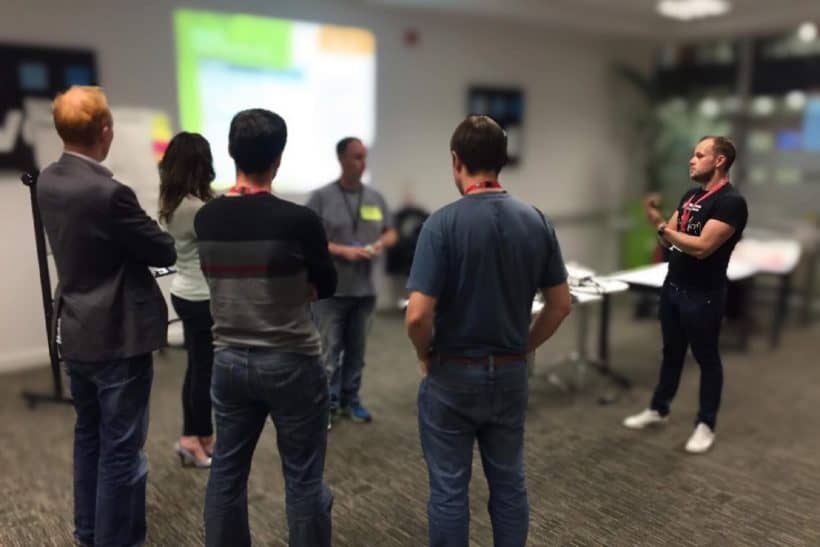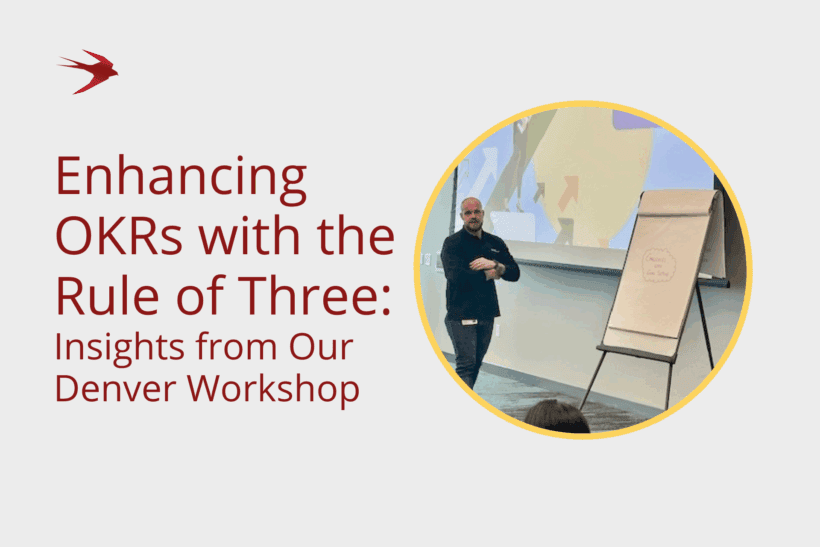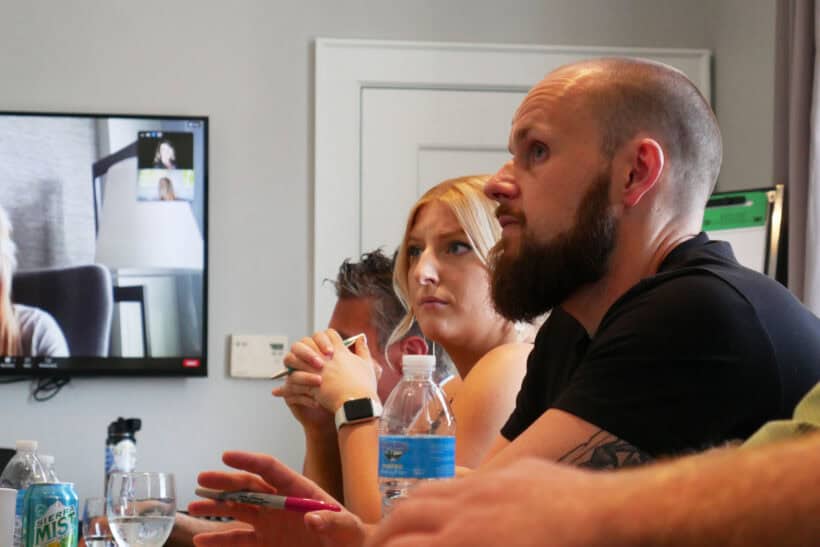We have worked on numerous agile transformation efforts over the years in the role of agile coach and in each one, we have delivered a huge range of services encompassing team coaching, executive coaching, training, workshops, facilitation of events, tool set up, problem-solving, mentoring, consultancy and content creation.
The same title – agile coach – but a very varied role.
From the long list of different roles we have taken on in our boutique agile consultancy, it’s easy to see that the title ‘agile coach’ is loosely defined and understood. So, we’ve used this article to delve deeper into the misconceptions of agile coaching and how to overcome them.
What is Coaching?
The International Coaching Federation (ICF) is one of a few widely respected and accepted industry leaders in coaching, so we will use their definition of coaching as our starting point.
They define coaching as “partnering with clients in a thought-provoking and creative process that inspires them to maximize their personal and professional potential. The process of coaching often unlocks previously untapped sources of imagination, productivity and leadership.”
As you can see from their definition, pure coaching is very much different from some of the elements of the role of an agile coach that we’ve been asked to fulfil in the past.
What is Agile Coaching?
The Scrum Alliance defines agile coaching as someone who “helps individuals, teams, and entire enterprises embrace a culture shift based on proven human-centric agile principles, practices, and values. This culture shift helps people and organizations continue to thrive in the ever-changing world of work.”
The Scrum Alliance definition is similar to that of the ICF in that it is focused on the development of people at its core, but with a focus on the adoption of agile principles, practices and values, such as Scrum, Kanban and Lean.
The Scrum Alliance further defines what a certified agile coach will do:
- Partner with you in a creative and co-designed approach, helping you discover your goals and purpose, define the steps and solutions to achieve them, and support the pursuit of those goals.
- Accelerate your agile journey through implementing agile principles, tools and practices and leveraging the science of change.
- Increase your ability to manage changing priorities; productivity and project visibility; and alignment between teams and leadership.
- Sustain your change through mentoring and educating your teams and the organization and building the capacity for them to continue to grow and thrive long after the agile coach has left.
As you can see, the role of an agile coach suddenly branches out to include the following:
- Creation of a transformation roadmap
- Defining goals for the transformation
- Support the pursuit of goals
- Implementation of agile principles, tools and practices
- Coaching leaders to improve communication with teams
- Coaching and consulting on new ways to deliver projects and/or products through prioritisation mechanisms, ways of working and transparency
- Providing mentoring
- Providing training
- Setting up teams and the organisation for long lived success
- Defining and shaping an exit plan for the coach themselves
With all of this in mind, no wonder there are so many agile coaching misconceptions…
Agile Coaching Misconceptions
Misconception 1: Agile coaching is the same as coaching
Agile coaching and personal coaching or executive coaching are not the same. Agile coaches are much more focused on the adoption of agile principles, practices and tools, whereas a “pure” coach is entirely focused on their coachee and the relationship.
In pure coaching, the coachee is responsible for the content and the direction of travel, assisted and facilitated by the coach with questions, listening and curiosity. You can expect an agile coach to be an expert in agile and bring a level of expertise with them to be drawn upon.
Misconception 2: All agile coaches know everything agile
You’d be forgiven for thinking that an agile coach is entirely impartial and is an expert in all the different flavours of agile methods. Unfortunately, the agile umbrella is so wide and encompassing that you’d be lucky to find someone who can teach them all with the experience to back it up.
In contrast, it’s important to “Beware the coach of one book”. Change is at the heart of agile. While some agile approaches work better in some contexts than others, there is no one size fits all. Look for an agile coach who has a blend of knowledge and experience, but most importantly, one who is transparent about what they do not know.
Misconception 3: Agile coaches are senior scrum masters
We’ve arrived at a client site in the past and when introduced to the scrum masters, we sensed an air of trepidation. Some organisations perceive agile coaches to be more senior, qualified, or experienced than scrum masters – while this could be the case in some circumstances, it’s not a blanket rule.
Scrum masters and agile coaches are two completely different roles although they often go hand in hand. Part of the scrum master role is coaching the team members in self-management and cross-functionality, and coaching the organization in its scrum adoption – which in most cases is enhanced with the support and coaching from an agile coach.
Misconception 4: We only need an agile coach for our problem teams
Think of your favourite sport. Do the most successful teams in the league have a coach? Whilst the answer may be obvious, in organisations it’s often assumed that the top performing teams are fine, so don’t need to work with agile coaches.
This is problematic for several reasons. Firstly, it sets a precedent that receiving agile coaching is a bad thing or even a punishment. This can cause the people receiving the coaching to be resistant to change. Another potential issue is that an agile coach can fall into a “rescuer” mode as per Karpman’s Drama Triangle. Finally, the teams who are seen as currently performing can miss out on the chance to unlock further potential and move towards being a truly high-performing team.
Misconception 5: Agile coaches are not needed for a successful transformation
Ok, this is not necessarily a misconception – you do not need to have agile coaches for a successful agile transformation – however we wouldn’t recommend it! The diverse and unique set of skills, knowledge and experience that a great agile coach can bring means that they can guide, teach, mentor, coach, facilitate and consult throughout your implementation.
Misconception 6: All agile coaches know how to coach people
Agile coaches are mostly great at facilitation, providing expert knowledge, consulting, implementing agile principles, practices and tools, but coaching is the most difficult aspect. The business coaching industry is not regulated so anyone can call themselves a coach without the necessary coach training. If you want your agile coach to also coach, look out for their coaching experience too.
3 Ways to Overcome Agile Coaching Misconceptions
I want to share a few things you can do to overcome some of the misconceptions around agile coaching:
1. Understand what agile coaching is to you and what you need
Do you want a coach who is focused solely on developing the potential and growth of your people? Are you looking for an agile coach who can coach, but can also mentor, teach, facilitate, and consult too? Or do you need a blended service of both, backed up with accreditation and or coach-specific training from an industry-recognised company?
McKenna Agile Consultants can partner with you to provide agile coaching services that span all three of these options to suit your needs, in addition to other coaching services such as our group agile masterclass series for agile leaders
2. Invest in the long term
Agile coaching can be time-consuming and a large financial investment. Consider supplementing external agile coaches by growing an internal coaching capability to embed coaching into the organisational culture long after the agile coaches are gone.
3. Coaching is for everyone
Everyone deserves the opportunity to grow and develop – not just the people and teams that are perceived to need it the most. Imagine the cost of not providing the opportunity for growth and development at all levels of your organisation.
Agile Coaching Misconceptions and How to Overcome Them
If you’re looking for support to embed learnings from training into the team, our agile coaches will focus on helping the people that they coach to be more collaborative, transparent, quality driven and value focused.
Get in touch today to discuss your agile coaching needs.


